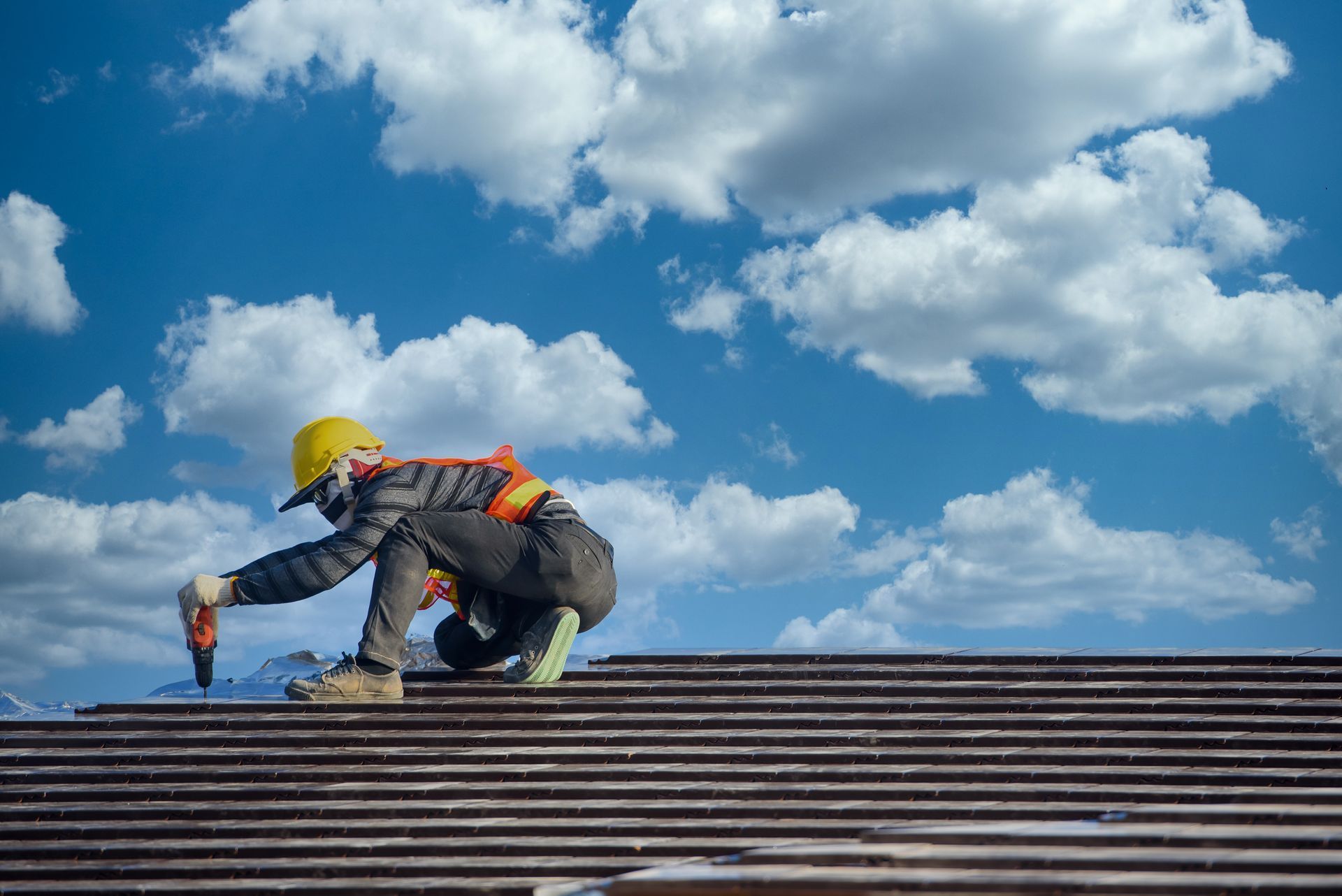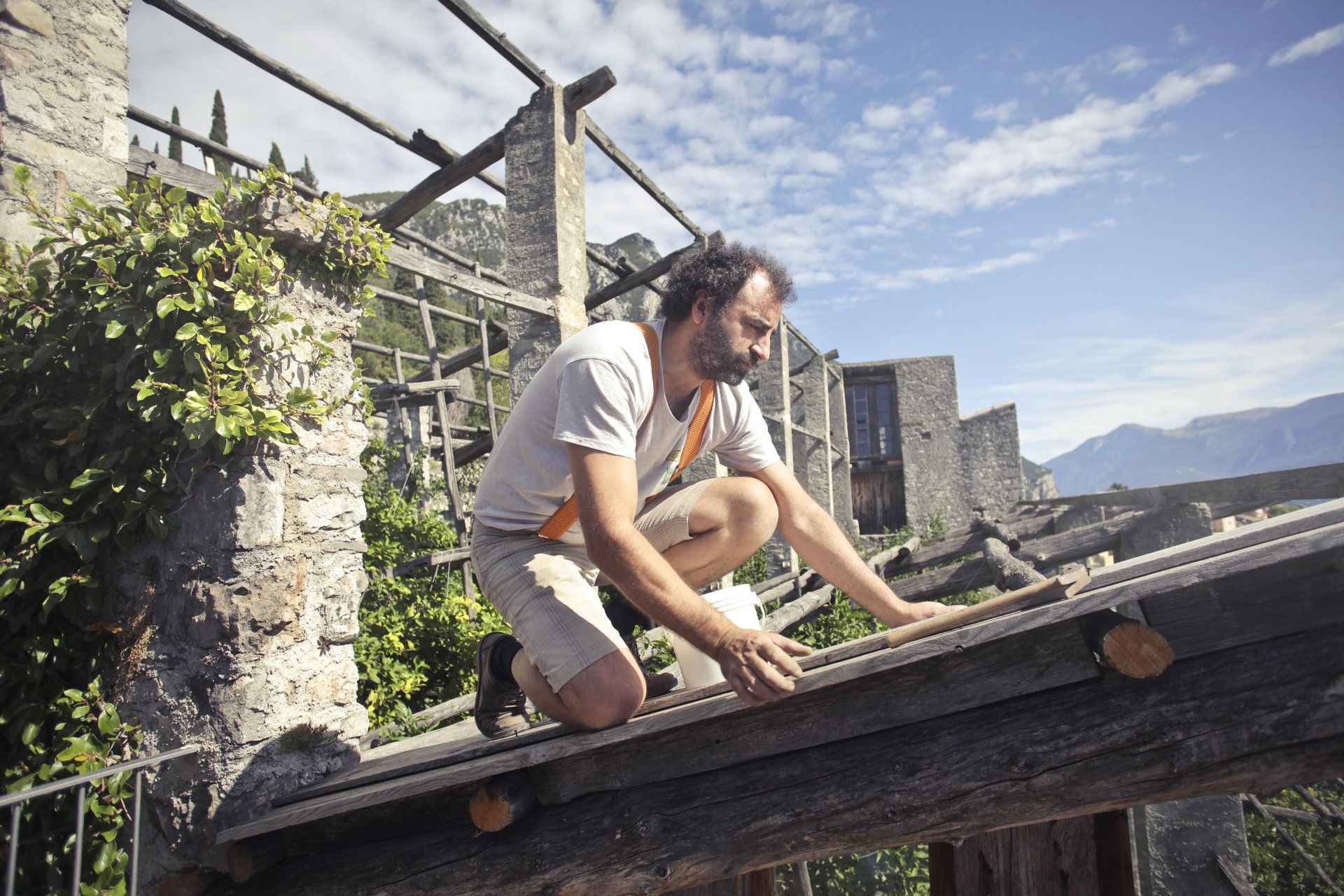The Secret to Finding a Reliable Roofing Services in Rockwall, Tx
Finding a reliable and trust-worthy roofing contractor in Rockwall, TX is not a walk in the park---given that there are several roofing companies that offer the same service.
Choosing the right roofing contractor in Rockwall, Texas, is essential for any homeowner looking to ensure the durability and quality of their roofing project. With numerous contractors available, determining which one is reliable can be a daunting task.
As such, our article will help provide clear guidelines, so you navigate this crucial decision effectively and ensure your roof stands strong for years to come.
Let’s begin!
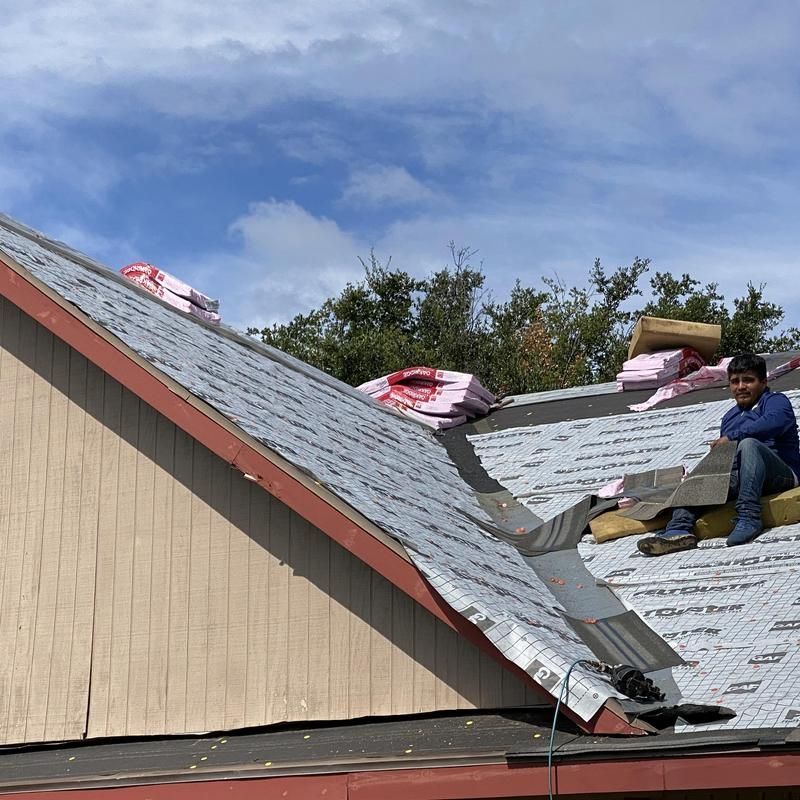
Understanding the Role of a Roofing Contractor and the Services It Offers
Roofing contractors offer a wide variety of roofing-related services. And they often have services tailored to a specific type of structure. But mainly, they provide installation, repair, replacement, inspection, cleaning, and maintenance.
Here’s a brief overview of each service.
Installation, Repair, & Replacement
- Installation. It is the process of placing a new roofing material on a new building or home.
- Replacement. It is the process of replacing an old or damaged roof with a new one. It is typically needed when the existing roof has reached the end of its lifespan or is severely damaged.
- Repairs. It is the process of assessing and fixing specific issues like leaks, missing shingles, damaged flashing, or other minor problems that don't require a full replacement.
Inspection, Cleaning, and Maintenance
- Inspection. It is a detailed assessment of the roof’s condition and can help identify potential issues that needs fixing, as well as areas that need maintenance or repair. It is usually insurance companies or home buyers that request for a roof inspection.
- Maintenance. It is the process of routine check-ups and fixing minor issues to prolong the life of a roof. It might include cleaning gutters, removing debris, sealing minor leaks, and replacing damaged shingles or tiles.
- Cleaning. Roof cleaning involves removing moss, algae, dirt, and other debris from the roof to prevent damage and, at the same time, improve its appearance. The process usually involves power washing or the application of cleaning solutions.
Consultation
Roofing contractors also offer consultation services. Consultations typically involve assessment of the roof’s current state and, at the same time, provide recommendations for repairs or replacements. Consultations cover an average estimate of the proposed work too.
Contractors may also provide insights into the best materials for a specific project, potential energy-saving solutions, and guidance on maintenance. Consultation services is essential for homeowners to make informed decisions as well as for contractors to understand the scope and requirements of a project before commencing work.
Project Assessment & Management
Aside from consultations, roofing contractors also provide project assessment and management services. Project assessment and management is a two-step service that involves comprehensive evaluation of the roof’s current state, identifying areas of concern, as well as recommending suitable solutions.
Contractors will have the project assess first. Once done, management services encompass overseeing the installation and repair processes, ensuring that the work meets industry standards, adheres to the project timeline, manages the crew, and coordinates with suppliers.
Residential vs. Commercial Roofing Contractor
There are two types of roofing contractor. One works for homes and small-scale structures and is called residential roofing contractor. The other works for commercial and large-scale structures and is called commercial roofing contractor.
Here’s how the tow differ.
Residential Roofing Contractor
As its name suggests, residential roofing contractors primarily provide roofing services for homes and smaller housing structures. And because the roofs of residential structures often have steeper slopes, which dictates the choice of materials and installation techniques, selecting a roofing contractor that specializes in such areas is much effective.
Residential roofing contractors, in terms of materials, often use asphalt shingles, wood shingles, tiles, and metal. These materials are often chosen based on aesthetic appeal as much as functionality as well. The installation process, on one hand, is usually quicker than those of commercial spaces—often spanning a few days only, depending on the complexity and size of the structure’s roof.
Moreover, when it comes to equipment, tools, and techniques, residential contractors are geared toward pitched roofs and smaller surfaces. Thus, makes their approach different from their commercial counterparts.
Residential roofing also demands familiarity with local building codes specific to housing, as well as guidelines set by homeowners' associations. Contracts in residential roofing tend to be simpler, usually focusing on the scope of the job, chosen materials, and warranty terms.
Commercial Roofing Contractor
Commercial roofing contractor, on one hand, is someone who specializes in in repairing, maintaining, and installing roofing in commercial, industrial buildings, and large-scale structures. And unlike residential roofing contractors, they usually work with flat roofs or those with a very low slope.
Commercial roofing contractors are specifically trained to work with roofing for large-scale structures. They understand how drainage, insulation, and load-bearing capacity for this type of structures and thus, can provide effective roofing solution.
In terms of the materials, commercial roofing utilizes materials like single-ply membranes like TPO, EPDM, and PVC. They also use modified bitumen, built-up roofs, metal, and even green roofing systems that support vegetation.
Given the sheer size and complexity of commercial roofing projects, the installation process can take several weeks to months. Commercial contractors also need to be adept at handling heavier equipment, specialized tools, and larger crews.
The Roofing Contract
A roofing contract is an official and legally binding agreement between a homeowner (the client) and a roofing contractor (the service provider). The agreement covers the specifics of the roofing service or project that will be provided.
The contract contains important details such as the scope of work, materials to be used, costs, timelines, warranties, and other terms and conditions. It serves as a roadmap for the project as well and ensures that both parties understand their responsibilities and expectations. It is also crucial as it provides protection in case of disputes or discrepancies.
What Should Be in a Roofing Contract?
Whether it is for a roofing service or not, reviewing a contract before signing is a must and helps prevent possible disputes that may happen down the line. Always remember that a roofing project represents a significant investment and can directly impact the safety, functionality, and value of a property.
And, thus, the contract must be examined meticulously as it is critical step in guaranteeing that the project runs smoothly, efficiently, and to the satisfaction of all parties involved.
That said, here are the common details you will find in a roofing agreement.
- Client information. It is an essential information that highlights personal details of the client. It includes the basics such as the name, address, contact information, insurance details, and even license number if applicable.
- Scope of work. Scope of work must cover a detailed description of the service that will be provided. If it is a roofing replacement or maintenance only, for example.
Contractor must provide the details of the material type, brand, style, and even color. If there are additional roofing-related tasks such as gutter repair or installing a ventilation system, this information must be included too. - Cost and payment details. Under this section, the service provider must disclose the total cost of the project as well as a detailed breakdown. Preferred payment method, schedule, and provision for possible additional cost must be highlighted as well.
- Materials. A roofing contract must include information about the materials that will be used. These include the brand, type, color, functionality, as well as the warranty details.The service provider must also disclose the person who is responsible for sourcing and delivering materials.
- Warranties and guarantees. Details on who will be responsible for obtaining necessary permits or approvals. Costs associated with permits.
- Permits and approvals. Duration and terms of the contractor's workmanship warranty. Manufacturer’s warranty details for roofing materials.
Why Should You Hire a Professional Roofing Contractor?
Hiring a professional roofing contractor is essential for various reasons, each of which contributes to the overall success, safety, and durability of your roofing project. Here's a comprehensive explanation of some primary reasons:
- Skills and Experience. Professional roofing contractors—both residential and commercial roofing contractors—have accumulated years of experience in the industry which helped honed their skills over countless projects. Their expertise and skills guarantees that they can manage any challenges they may possibly encounter while working on the project—whether it is diagnosing issues or determining the best solution to the problem.
- Safety. Roofing works can be hazardous. Accidents such as falls, tool mishaps, and other accidents can occur without proper precautions. Professional roofers such as Trake Construction’s team invest in the right safety equipment to ensure the safety of their crew and prevent potential liabilities for homeowners.
- Cost-effectiveness. While it might seem cheaper to go the DIY, professional roofing contractors often help homeowners save money in the long run. Industry connections allow them to source materials at lower costs, and their expertise ensures the job is done right the first time, reducing the need for future repairs.
- Quality materials. It is no secret that established roofing contractors have access to high-quality and durable materials that are often at wholesale prices. They understand the best materials for specific roofing types and climates, ensuring longevity and optimal performance.
- Time-efficient. Professional roofing contractors have vast experience and often owns specialized tools that can help complete roofing projects efficiently and within a stipulated timeframe. The speed reduces the inconvenience for homeowners.
- Warranties. Despite knowing their expertise and skills, warranties are still important. And many professional roofing contractors offer it.
Warranties are like a shield that help customers in case issues arise within the warranty period. When that happens, contractors will address them at no extra cost. Additionally, using a professional often ensures that manufacturer warranties on roofing materials remain valid.
Choosing a Roofing Contractor: Narrowing Down Your Options
Independent Contractors vs. Roofing Companies
Do you know that there are two types of roofing contractors? The first one is an independent contractor, and the second one is a roofing company.
So, to narrow down your options, you must learn the difference between the two. Here’s a quick overview to help you.
- Independent contractor. An independent roofing contractor is typically a one-person service provider—can also be a small team—that offers specialized roofing services. And it can be both residential and commercial roofing works. Unlike a roofing company, these contractors operate on a smaller scale and often manages specific types of roofing projects. With lower overhead costs due to their limited operations, they might offer competitive pricing. The problem is that their capacity to tackle multiple or large-scale projects can be restricted. Thus, it is essential for clients to verify the licensing and insurance of independent contractors to ensure they meet necessary professional standards.
- Roofing company. A roofing company, on the other hand, is a larger business entity. Generally, they have more extensive infrastructure, has multiple teams of professionals and often administrative staff. They usually manage several projects simultaneously, spanning both residential and commercial sectors. While they might have higher overheads, their larger scale often allows them to source materials in bulk and provide a broader range of services. Roofing companies generally come with comprehensive licensing and insurance, reflecting their established nature and commitment to professional standards.
Local Presence
When choosing a roofing contractor, it is highly recommended to opt one with an established local presence. Some contractors move after storms to find work (often called "storm chasers"). A local contractor will be there if you need follow-ups or if warranty issues arise.
To do that, start by asking neighbors, friends, or family in Rockwall for recommendations. A contractor with a good local reputation is often a safe bet.
Ask About Licenses, Warranty, and Insurance
- Licenses and permit. It is also important to make sure that the contractor has licenses to operate in Texas—Rockwall specifically. The contractor must have city or county permits too. Having these official documents shows that they are well-versed in local building codes and regulations.
- Insurance. Also, they must have both liability insurance and workers' compensation insurance to protect you from potential claims.
- Warranty. Your preferred contractor should also provide a workmanship warranty. It is also essential to ensure that they use materials from manufacturers who provide product warranties.
References and Reviews
Another way to see if a contractor is reliable and trust-worthy is through references. Ask the contractor for references from previous jobs. Then reach out to them and ask about their experience and satisfaction with the work done.
Asie from references, online reviews help too. Websites like the Better Business Bureau (BBB), Yelp, Google My Business, and Angie's List can provide insights into previous clients' experiences and the contractor's overall reputation.
When Should You Call a Roofing Contractor?
It is essential to know when to call a roofing contractor to address potential issues immediately to prevent further damage. Below are some situations when you should consider reaching out to a roofing professional.
For Inspection and Maintenance
- Routine inspection. It is a good habit to have your roof inspected at least once a year or after major storms. Regular inspections can identify potential issues before they become significant problems.
- After severe weather. After events like high winds, hailstorms, or heavy snowfalls, it is highly recommended to have your roof inspected for potential damages.
- Sagging roof. A sagging, old roof can indicate structural issues. When you find your roof like this, it could be problems with the decking in the attic or foundational supports.
- Moss and algae growth. While it might not always be a sign of damage, moss or algae can trap moisture. If not properly removed, it could lead to potential roof deterioration. A contractor can advise on removal and prevention.
- Old roofs. Most roofs have a lifespan of 20-30 years. If your roof is approaching this age or is older, it's wise to have a contractor assess its condition.
For Repair and Replacement
- Leaks. Water stains on your ceiling, walls, or dripping water indicate a potential roof leak.
- Visible damages. If you notice broken, missing, or curled shingles; damaged flashing; or tiles that are cracked, it's time to call a contractor.
- Old roofs. Most roofs have a lifespan of 20-30 years. If your roof is approaching this age or is older, it's wise to have a contractor assess its condition.
Installation
- Home improvements. If you are considering installing skylights, solar panels, or making other structural changes that involve the roof, consulting a roofing contractor is essential.
- Improper ventilation. If your home feels excessively hot in summer or there is frequent condensation in colder months, it might be due to improper roof ventilation.
- Sudden high energy bills. If you notice a sudden spike in your energy bills, it might mean that your roof is not insulated enough to keep your home cool properly.
Trake Construction Is a Reliable Roofing Contractor in Rockwall, TX
Selecting a reliable roofing contractor in Rockwall, Texas, is a crucial decision that can greatly influence the longevity and quality of your roofing project. By leveraging local references, verifying licensing and insurance, checking online reviews, and paying close attention to communication and professionalism, residents can ensure they're making a well-informed choice.
If you have not found one yet, check out Trake Roofing & Construction.
There are many things that make Trake Roofing & Construction stand out from other roofing companies in the area. But don't take our word for it. See what our clients have said about their experience with Trake!
Call (972) 922-2422 now and we will get you taken care of!
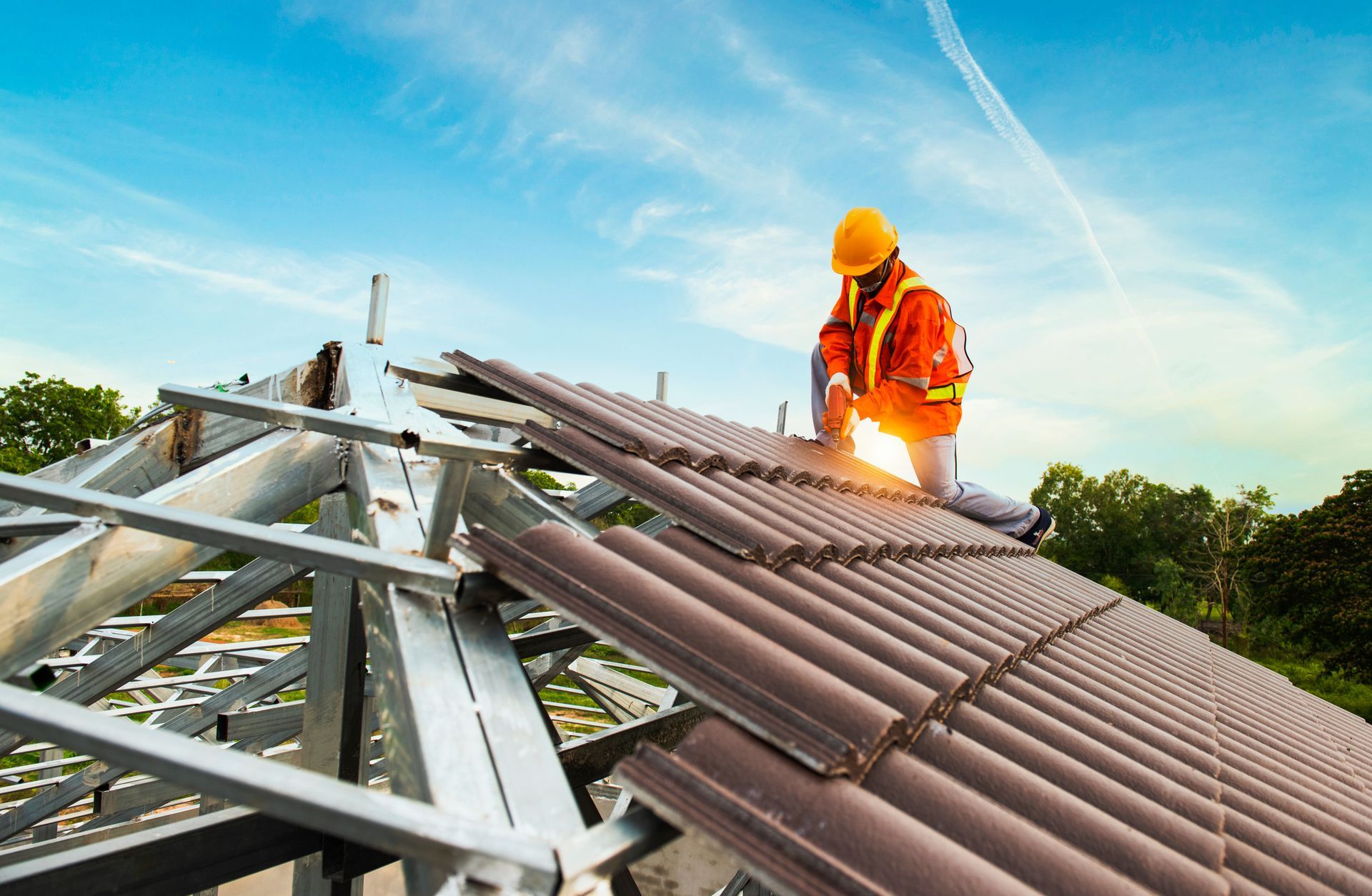

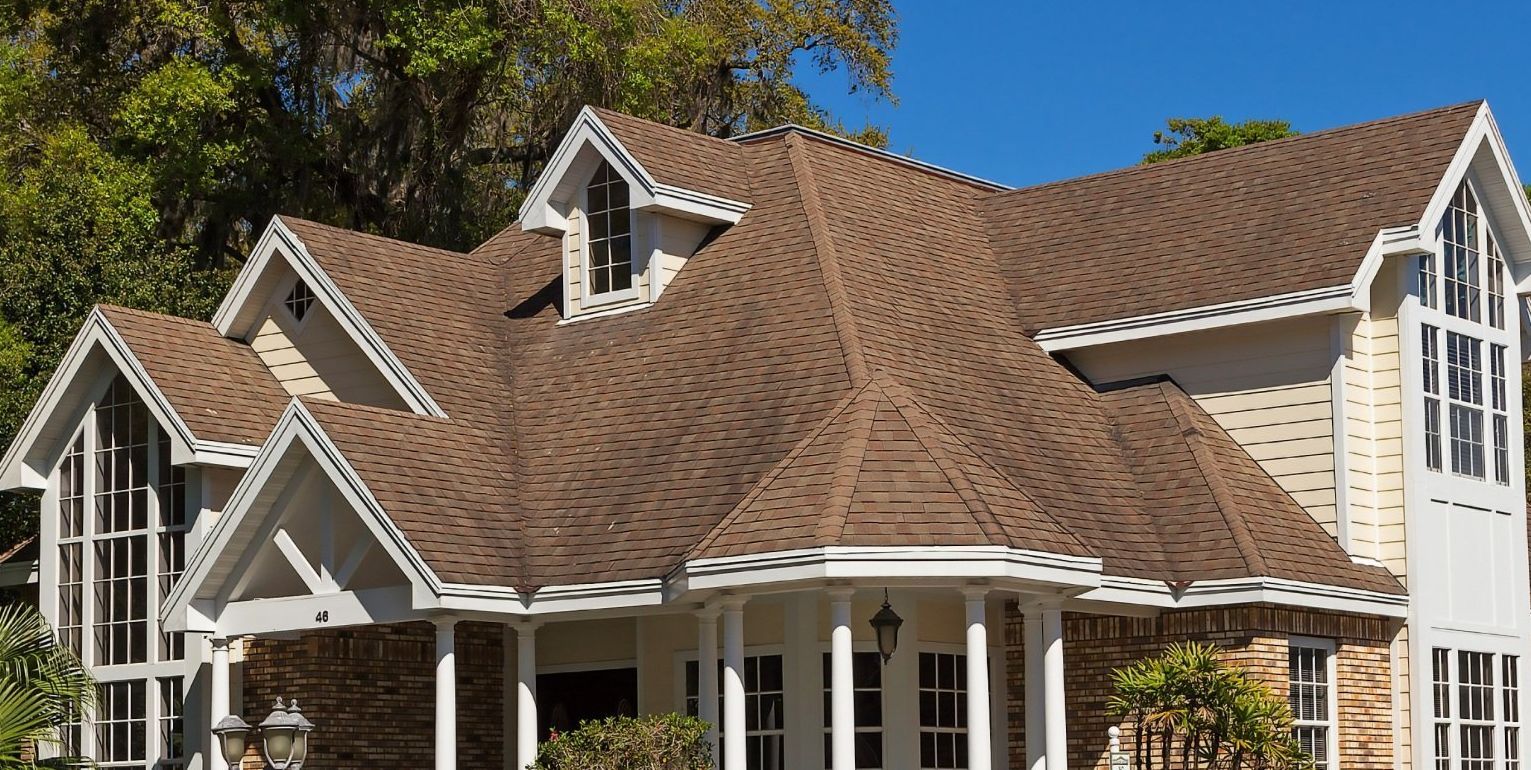

Trake Construction Management, LLC partners with homeowners and business owners to restore and improve properties affected by weather-related damage and general disrepair.
Services






